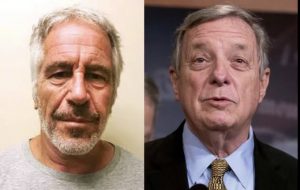China and the United Arab Emirates’ (UAE) nominees for Interpol’s executive committee and presidency have ran into opposition by human rights groups and lawmakers, who claim these countries will use their clout at the global policing body against dissidents at home and abroad. France-based Interpol’s general assembly convenes in Turkey on Tuesday to elect new leadership. The candidates include Ahmed Naser al-Raisi, inspector general at the UAE’s interior ministry, and Hu Binchen, an official at China’s ministry of public security.
Al-Raisi, who is already a member of Interpol’s executive committee, is seeking to be elected Interpol’s president for a four-year term; while Hu Binchen is one of three candidates up for two seats as Asia delegates on the 13-member committee.
Where is Peng Shuai? China has a history of high-profile disappearances
Interpol’s president and executive committee set policy and direction and also supervise the body’s secretary-general, a post currently held by German official Juergen Stock.
Al-Raisi is accused of torture and has criminal complaints against him in five countries, including in France, and in Turkey, where the election is taking place.
Fifty politicians from 20 countries, including lawmakers from the US, UK, Australia and the European Parliament, wrote to their governments last Monday urging them to oppose Hu’s election.
Hu’s election would “be giving a green light” to China’s government “to continue their misuse of Interpol and would place the tens of thousands of Hong Konger, Uyghur, Tibetan, Taiwanese and Chinese dissidents living abroad at even graver risk,” the letter said.
China will not seek dominance over Southeast Asia: Xi Jinping
The letter, organized by the Inter-Parliamentary Alliance on China, an international group of legislators, cited the arrest of a Uyghur activist, Idris Hasan, by Moroccan authorities in July under a “since deleted” Interpol red notice requested by China.
Chinese official Meng Hongwei, who was elected Interpol president in 2016, disappeared on a return trip two years later. He was later sentenced to a 13-and-a-half jail term for corruption, charges that his wife Grace Meng, now living in France with her children under police protection, said were trumped up and politically motivated.
(With AP inputs)






